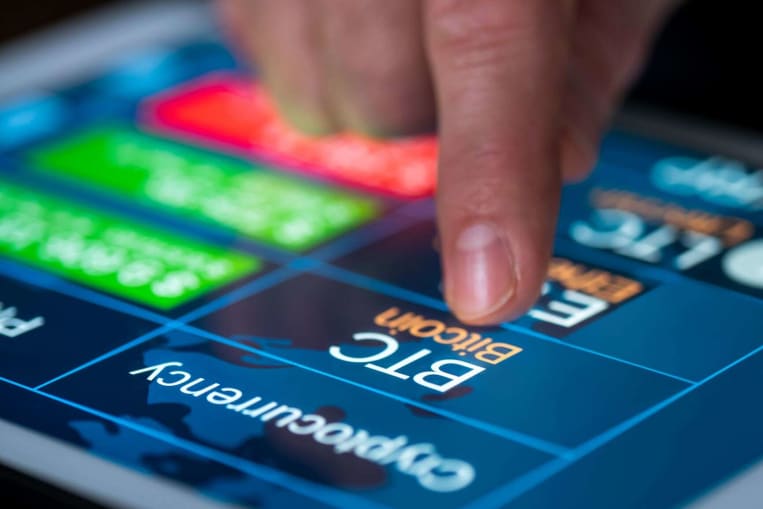
BBB Tip: Cryptocurrency trading platforms - do your homework

(Getty Images)
In the world of cryptocurrencies and blockchain technology, a number of service providers have emerged to assist users in managing their cryptocurrencies. An important development is the emergence of cryptocurrency online platforms that let users buy, sell, exchange, and in some cases, store cryptocurrencies.
These platforms serve as centralized intermediaries that facilitate trading and recording of cryptocurrencies, as well as facilitate holding cryptocurrencies. While these platforms are colloquially referred to as “exchanges,” they typically are not registered as such in the U.S. (in contrast to entities such as the New York Stock Exchange that function as national securities exchanges) and may not be subject to any regulatory oversight.
Indeed, the SEC has warned investors about Initial Exchange Offerings through online trading platforms, which might make investors think that they are regulated entities or meet the regulatory standards of a national securities exchange. Furthermore, even those platforms that are registered in jurisdictions outside the U.S. may be subject to limited oversight.
When you use a cryptocurrency trading platform to obtain or transfer your cryptocurrencies, keep these tips in mind:
- There are different types of platforms. Some allow you to trade and exchange “fiat” currencies such as U.S. Dollars or Euros for cryptocurrencies and vice-versa. Others allow “cryptocurrency- to-cryptocurrency” exchange—for instance trading or exchanging Bitcoin with another cryptocurrency. Some platforms allow you to do either option. Know what each platform offers, and what safeguards, if any, are in place to protect users.
- Theft happens. Theft by cyberattack is real. One of the most famous cryptocurrency platforms, Mt. Gox, suffered a cyberattack in 2014, resulting in the loss of 750,000 bitcoins owned by the platform’s users. But other thefts have occurred since then. Theft or loss of keys that provide access to cryptocurrencies can also occur, effectively making it difficult if not impossible to recover them.
- Platforms aren’t FDIC insured. If a cryptocurrency trading platform is hacked or encounters some other technical challenge that causes the keys on the platform to be lost, you could lose all of your investment. Digital platforms are not banks. As such, the FDIC, which insures banks in the U.S., does not insure digital assets held by a cryptocurrency platform—though dollar deposits may be insured, if held in an FDIC member bank.
- Losses are not SIPC-protected. You are not protected against losses of crypto assets by Securities Investment Protection Corporation (SIPC), which protects customers of SIPC member brokerage-firms against loss of cash or securities in certain circumstances.
- You will be charged fees and may not always get the best price for your trade. Crypto trading platform fees vary, sometimes significantly from one platform to another. Compare deposit and withdrawal fees, as well as trading fees. Buy and sell prices can vary significantly from one platform to another, as well. Also compare exchange rates, as they too can vary by platform.
- You may not get immediate access to your cryptocurrency. Many of these platforms are relatively new and may not be scaled to handle large volumes of customer requests. As a result, you may not be able to get immediate access to your holdings or sell them when you want to, potentially resulting in increased losses or reduced potential gains.
- Test the platform. As with any new technology, if you decide to begin using cryptocurrency trading platforms, it can be a good idea to start small and do a little testing. How does the platform handle a modest trade? Was it completed to your satisfaction? In what timeframe, and at what cost? Also test whether you can easily take money out of the platform if you need to—and whether you can contact individuals at the platform in the event of a problem.
- Watch out for scams. Be on the lookout for scammers and bad actors looking to lure unsuspecting investors into storing their public and private keys with fake trading platforms. Fraudsters may also pose as fake tech support staff for legitimate platforms. Therefore, it is important to scrutinize an institution before using its service. The Securities and Exchange Commission has issued guidance on this topic, noting a number of factors that investors should consider before utilizing these types of services.
Use Caution
Cryptocurrencies represent a relatively new type of technology that demands new ways to exchange, trade and store assets. Do your best to research the pluses and minuses of each platform. Remember that if a platform does not take sufficient measures to properly secure and store your assets, you may lose some or all of your investment.
Subscribe to FINRA's The Alert Investor newsletter for more information about saving and investing.
Still Need Assistance?
Contact Your Local BBB
Your local Better Business Bureau can assist you with finding businesses you can trust. Start With Trust®.
Additional Resources
Central Ohio BBB Business Podcast